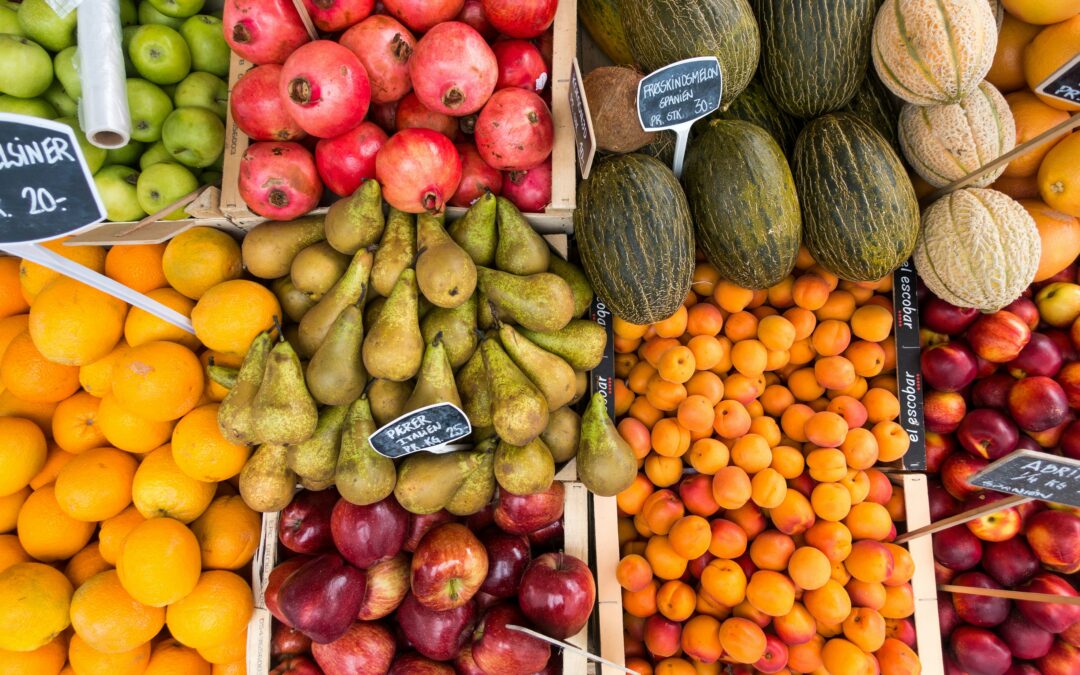By Ryan Cumming
THE QUESTION IN MY EMAIL inbox was one of the oddest I had received as a food systems educator: “How did a plastic box of Brussels sprouts destined for a grocery store in the northeastern U.S. end up on a discount table at a farmer’s market in the Bay Area of California?” The answer to that question opens a doorway into the complexity of our food systems, as well as the relationship many of us have with food. It’s a key concern for Christians.
Food—like water—is essential for life and a sign of our relationship with creation and the Creator. In a way, the story of God’s relationship with God’s people is a story of food—both physical and spiritual. In the beginning, God plants a rich garden of foods. Of course, the first sin involves eating a forbidden food. What is the final act of the Hebrews as they leave slavery in Egypt? A meal. The focus of many laws for God’s people? Food. Naomi and Ruth’s reason for returning to Bethlehem (and for leaving in the first place)? Food. What do Jesus and the twelve disciples do the last time they are together? Share food. God’s promise in Revelation? Plenty of food. What previous work experience did leaders of the faith, such as Moses, David and Amos, have? Serving as shepherds and food producers. Food is central to our stories, experiences and expressions of faith. Food reminds us that we are dependent on God and connected to one another and to all of creation.
The problem is, we don’t like to be reminded that we are dependent or connected. Our refusal of dependence and connectedness is one way that Lutherans understand sin. Sin is an inward turning and the temptation to believe that we must do it all on our own—or even that we can do it all on our own. Our nation tends to celebrate independence, rugged individualism and the “self-made” person. We valorize those who conquer nature, rather than the people who humbly recognize their dependence on it.
And it’s not just the stories we tell; it’s also the systems we create. Food systems in the U.S. and much of the world are designed to detach us from the sources of our food and disconnect us from the land, water, soil and people who provide it. Like the letter writer who wondered about the path of those Brussel sprouts, we often know very little about where our food comes from, let alone the labor and input that produced it. Our interpersonal encounters as we obtain food are less likely to involve a farmer and more likely to involve a retailer (or nowadays, a self-checkout machine). Today, far fewer people are directly involved in farming.
There have been some benefits, of course: greater efficiency and corporatization of our food systems, for example. But the costs are steep. While many people in the Global North enjoy a more varied diet throughout the year, countries throughout the Global South have been forced to use their arable land to produce commodity crops for export, instead of growing crops to feed their own communities. As we learned from the COVID-19 pandemic, this efficiency comes at the cost of resilience. With fewer, larger suppliers providing so much of our food, shutdowns and slowdowns at corporate processing facilities left grocery shelves empty. At the same time, smaller, local farms with plenty of livestock and crops were essentially locked out of a food system designed for larger producers.
Perhaps the greatest costs are revealed in the deep woundedness of creation. In the U.S., as many as 90 percent of streams and more than 90 percent of fish in developed watersheds are contaminated by pesticides, according to a U.S. Geological Survey assessment (http://tinyurl.com/ bdh2cd55). Research shows that food systems contribute a third of greenhouse gas emissions, driving climate change around the world. Yet some experience the effects of climate change more than others. Consumers in wealthy, developed countries reap the rewards of cheap, readily available foods at supermarkets. However, people in low-income countries face greater risks of climate change, such as vulnerability to extreme weather events and the loss of arable land, despite having fewer resources to adapt to a changing climate. As the 2023 ELCA social message “Earth’s Climate Crisis” states: “One of the greatest injustices wreaked by climate change is how, across the globe, those living in poverty have contributed the least to produce it and yet bear its greatest consequences.”
Ryan P. Cumming is the ELCA program director for theological ethics, education and community engagement. Ryan also teaches at Loyola University Chicago and Central Michigan University’s Global Campus. He lives in Michigan with his family.
This excerpted article appeared in the March/April 2024 issue of Gather. To read more like it, subscribe to Gather.
Watch for the new study guide for “Earth’s Climate Crisis,” a social message of the ELCA, at https://elca.org/Resources/Faith-and-Society#Studydocs, coming in time for Earth Day 2024.



